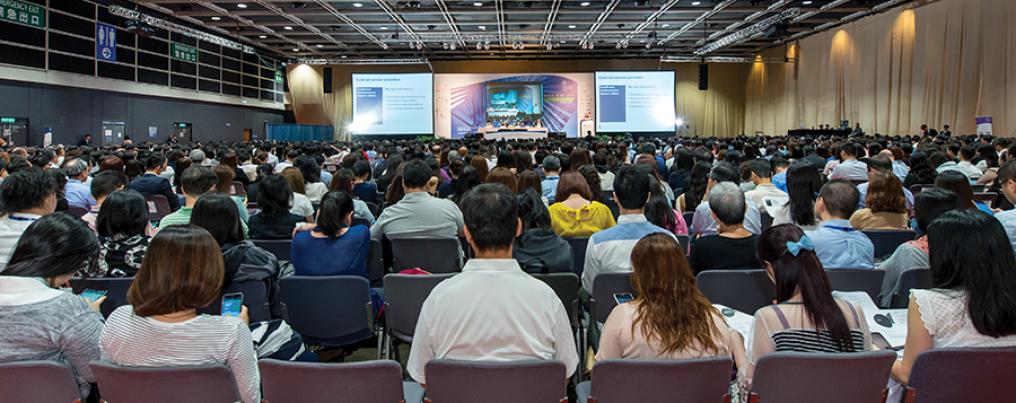Since the Hong Kong Competition Ordinance took full effect on 14 December 2015, the Competition Commission has gradually shifted to a harder line enforcement style. Alastair Mordaunt, Partner; and Joy Wong, Associate; Freshfields Bruckhaus Deringer, look at the enforcement of the Ordinance so far and map out the likely future trajectory of competition compliance in Hong Kong.
The Hong Kong Competition Ordinance (Cap 619) (the Ordinance), which took full effect on 14 December 2015, is the first economy-wide competition law for Hong Kong and has already changed the way local companies conduct business.
Prior to the Ordinance's entry into force, some feared that the Hong Kong Competition Commission (the Commission) – the main agency charged with enforcing the Ordinance – would be a toothless tiger. Indeed, in its early days, many questioned whether the Commission would have the resources, expertise and determination to vigorously enforce the Ordinance and doubted the merits of allowing competition law to interfere with business conduct in Hong Kong.
But the Commission has proven to be a serious enforcer. In its first 18 months of enforcement, the Commission has gradually shifted from a 'soft’ enforcement approach – emphasising the importance of compliance to the business community – to a harder line enforcement style, including conducting a number of unannounced inspections (dawn raids) and bringing its first case to the Competition Tribunal (the Tribunal), Hong Kong's specialist competition court. Notably, Commission Chairman Anna Wu GBS JP has commented that the Commission aims to prosecute two to three cases before the Tribunal every year.
What does the Ordinance prohibit?
The key prohibitions of the Competition Ordinance are set out in the graphic below.
 What are the Commission's enforcement priorities?
What are the Commission's enforcement priorities?
According to its enforcement policy published in November 2015, the Commission will prioritise enforcement against conduct that clearly harms consumers, such as bid-rigging, resale price maintenance and certain exclusionary behaviour by companies with a 'substantial degree of market power’.
The Commission's statistics on types of conduct and sectors investigated
As at the end of March 2016, the Commission had conducted initial assessments of cases across the sectors set out in the graphic below.

By mid-December 2016, the Commission reported that the top two sectors for cases undergoing initial assessment were (i) real estate and property management, and (ii) professional and technical services.
At the end of February 2017, the Commission had already received more than 2,000 complaints and inquiries, about half relating to the First Conduct Rule, 20% to the Second Conduct Rule and the remainder categorised as 'other’. Around 130 of these received initial assessment, of which 13% proceeded to in-depth investigation.
What have been the Commission's enforcement efforts so far?
The first Tribunal case
On 23 March 2017, the Commission brought its first case before the Tribunal, alleging that five companies rigged bids in a tender issued by the Hong Kong Young Women's Christian Association for the supply and installation of a new IT server system based on Nutanix technology.
The Commission is seeking from each defendant a pecuniary penalty and a declaration that it contravened the First Conduct Rule. While the case was brought before the Tribunal fairly quickly – just nine months from when the Commission received the complaint, the substantive hearing is not until spring 2018, creating a significant lag between the start of the investigation and the trial.
The shipping block exemption application
On 17 December 2015 – three days after the Ordinance came into effect, the Hong Kong Liner Shipping Association applied to the Commission for a block exemption from the application of the Ordinance for two types of liner agreements – vessel sharing agreements (VSAs) and voluntary discussion agreements (VDAs). VSAs allow carriers within a shipping consortium to operate a liner service along a specified route using a specified number of vessels (akin to an airline code-sharing arrangement). VDAs allow carrier members to exchange information, including certain information that may reduce competition in the market, for example supply and demand forecasts and freight rates
and surcharges.
In its statement of preliminary views, the Commission acknowledged that VSAs (subject to certain conditions) may generate sufficient pro-competitive benefits to justify a block exemption. However, the Commission asserted that VDAs should not benefit from the block exemption. Members of the liner shipping industry have criticised this view, warning that denying the exemption for VDAs could persuade shipping companies to move their operations to nearby ports, as such exemptions exist across various other Pacific Rim jurisdictions. At the time of writing, the Commission had not yet reached a final decision on this matter.
Market studies
The Ordinance stipulates that the Commission may conduct market studies into matters that affect competition in Hong Kong. To date, the Commission has conducted two market studies:
Residential building maintenance and renovation. Prompted by public concern over the increasing cost of building maintenance and renovation projects, the Commission initiated a market study of the residential building maintenance and renovation market, in particular allegations of bid-manipulation. Specifically, it analysed a number of project tenders, all of which pre-dated the Ordinance. In its May 2016 report, the Commission concluded that the tender data revealed patterns consistent with bid-manipulation and, going forward, similar data would very likely prompt further investigation.
Auto-fuel. Amidst public outcry over Hong Kong's high petrol prices, the Commission undertook a market study to analyse competition concerns, particularly the consistency of retail pump prices across retailers. In its May 2017 report, the Commission stated that it had found no evidence of anti-competitive conduct among market players and concluded that petrol price consistency was due to 'parallel pricing’ – which does not infringe the Ordinance. However, the Commission did identify some circumstances that could hinder competition and contribute to high prices, such as the availability of effectively only one single petrol product and the low visibility of pump prices. To address these issues, the Commission recommended the re-introduction of a second petrol type, an increase in the number of petrol filling station sites and more prominent displays of pump prices and walk-in discounts. The government is currently considering the Commission's recommendation for a different type of petrol, while noting that, due to the scarcity of land, it cannot commit to allocating more land for petrol filling stations.
Trade and professional associations
Prior to the Ordinance entering into force, the Commission launched its engagement and education programme for trade associations. In the months following, it worked closely with trade associations to encourage compliance and reviewed the published practices of 350 trade and professional associations in Hong Kong, identifying over 20 associations with practices potentially contravening the Ordinance. As at 1 September 2016, the Commission stated that it was aware of 19 trade associations which had removed their price restrictions or fee scales to comply with the Ordinance.
The Commission has warned that, after this initial soft enforcement period, non-compliant trade associations and their members may face enforcement action.
What is the outlook for future enforcement?
While the Commission has only brought one case to the Tribunal, it has been quite busy on other fronts – handling complaints and queries, educating the public on the importance of compliance, assessing the shipping block exemption application and conducting two market studies.
Looking ahead, enforcement is likely to pick up as the Commission seeks to meet its stated target of taking two to three cases to the Tribunal each year. Recent recruits to the Commission's leadership team are also likely to invigorate enforcement.
- Brent Snyder will become the Chief Executive Officer, replacing Rose Webb, on 4 September 2017 for a term of three years. Snyder previously served as the Deputy Assistant Attorney General for Criminal Enforcement in the Antitrust Division of the US Department of Justice.
- Dr Lilla Csorgo, former Chief Economist of New Zealand's Commerce Commission joined the Commission as its Head of Economics & Policy in May 2017.
- Steven Parker, Chief Litigation Counsel with the Hong Kong Monetary Authority, is expected to join the Commission in July 2017 as the Executive Director (Legal Services).
- Jindrich Kloub, cartels official with the European Commission, is expected to join the Commission in October 2017 as the Executive Director (Operations).
This new leadership team, which combines impressive local and overseas experience in both antitrust and general law enforcement, is expected to take a more vigorous enforcement stance. There may be a short-term slowdown in case output as the team gets up to speed and integrated into the authority, but in the medium to longer term companies should expect an uptick in enforcement action. Expect the Commission to maintain its focus on cartel conduct (particularly bid-rigging) and resale price maintenance in consumer-facing markets as well as increase the use of its investigatory powers, in particular dawn raids, as it continues moving towards a harder-edged enforcement approach.
How to ensure/enhance compliance with competition law?
In light of the Commission's increasingly aggressive stance, companies should consider whether their compliance procedures are fit for purpose. A good compliance programme includes:
- a 'top-down’ culture of compliance, led by senior management
- robust competition law policies and internal procedures
- regular training for managers and relevant employees, including dawn raid preparations, and
- regular monitoring and auditing of risk areas.
- There's no time like the present to make sure your company is prepared!
Alastair Mordaunt, Partner
Joy Wong, Associate
Freshfields Bruckhaus Deringer What are the Commission's enforcement priorities?
According to its enforcement policy published in November 2015, the Commission will prioritise enforcement against conduct that clearly harms consumers, such as bid-rigging, resale price maintenance and certain exclusionary behaviour by companies with a 'substantial degree of market power’.
What are the Commission's enforcement priorities?
According to its enforcement policy published in November 2015, the Commission will prioritise enforcement against conduct that clearly harms consumers, such as bid-rigging, resale price maintenance and certain exclusionary behaviour by companies with a 'substantial degree of market power’.
 By mid-December 2016, the Commission reported that the top two sectors for cases undergoing initial assessment were (i) real estate and property management, and (ii) professional and technical services.
At the end of February 2017, the Commission had already received more than 2,000 complaints and inquiries, about half relating to the First Conduct Rule, 20% to the Second Conduct Rule and the remainder categorised as 'other’. Around 130 of these received initial assessment, of which 13% proceeded to in-depth investigation.
By mid-December 2016, the Commission reported that the top two sectors for cases undergoing initial assessment were (i) real estate and property management, and (ii) professional and technical services.
At the end of February 2017, the Commission had already received more than 2,000 complaints and inquiries, about half relating to the First Conduct Rule, 20% to the Second Conduct Rule and the remainder categorised as 'other’. Around 130 of these received initial assessment, of which 13% proceeded to in-depth investigation.



